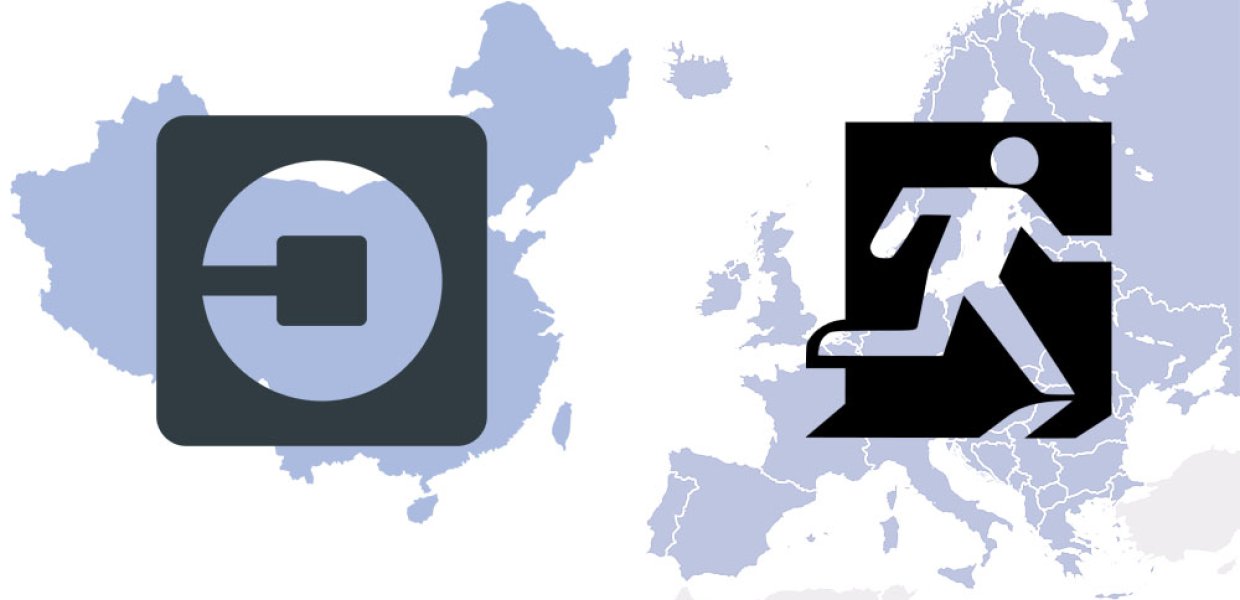Uber recently has been reported on the news frequently, but such publicity was presenting in a bad way—Uber app is no longer works in Chia, meanwhile, Uber is also banned in Italy. Not even to mention the previous Twitter #DeleteUber protest.
Uber in China
Last August, Uber has agreed to sell its Uber China branch to its rival in China’s market—Didi Chuxing—in exchange for a 20 percent stake in the merged operation. As a result, the two companies will remain their own brands, app, and business operation. According to Didi, “it will integrate the managerial and technological experience and expertise of the two teams.” On Uber’s side, Uber CEO Travis said that “Uber and Didi Chuing are investing billions of dollars in China and both companies have yet to turn a profit there…getting to profitability is the only way to build a sustainable business that can best serve Chinese riders, drivers and cities over the long term.” In terms of the actual product—Uber China—there are some key modifications that affect a lot of people. Uber China was being pilot tested since last October, and it launched officially on November 2016. Although there was a one-month transition period, it means it would be impossible for people who travelling to China to use Uber China. Specifically, Users now have to create a new account associated with Chinese mobile phone number as well as Chinese payment method, such as Alipay digital wallet and Union Pay.. Meanwhile, Didi has also removed its app’s English version interface, as well as the option to pay with foreign credit cards. In other words, people who do not have App Store account in China cannot download Didi’s own apps, neither they could register Uber China because of the local phone number and payment requirements.
On one hand, such mergence causes plenty of issues and questions regarding the business operation and future plan. First of all, although Uber has raised billions of dollars to create its operations across the global market, it seems those funding was still not enough to compete against Didi in China’s market. Secondly, people are wondering who are the real investors of Uber China, since Didi’s investors include Alibaba, Apple, Tencent, DST, and Softbank. Interestingly, Didi is also an investor in all of Uber’s key regional competitor: Lyft (in U.S. market), Ola (in India market), and Grab (in Southeast Asian market). On the other hand, some are speculating the reasons that Uber agrees to merge with Didi. One major guess is that Uber continued to use Google Maps to locate and match customers with drivers, even if Google Maps service was extremely limited in China. Such low efficiency forced Uber to adjust its cooperation by conducting a strategic partnership with Baidu Map in 2014. Another reason was related to the regulations in China. Under the national regulation, the data collected by Uber has to come under the purview of the government. Meanwhile, there would be no more subsidies since the state regulation asks hailing companies to merge with local taxi companies (which most of these taxi companies are owned by the local governments). In other words, Uber have to get both provincial as well as national regulatory approval for its activities anywhere in China; plus, online and offline services would be regulated separately.
Uber in Europe
Politicians and taxi drivers unions in Denmark argued that Uber held unfair competition, since it did not have to meet the same legal standards of established firms. In Denmark, all Danish taxis are required to have fare meters and seat occupancy sensors, but Uber drivers were being able to bypass such regulation. Uber has about 2,000 Danish drivers and 300,000 riders, and after its less-than-three-year operation, it announces that it will pull out of Denmark market next week, on April 18th. In the statement, Uber said that, “For us to operate in Denmark again the proposed regulations need to change. We will continue to work with the government in the hope that they will update their proposed regulations and enables Danes to enjoy the benefits of modern technologies like Uber.” Similarly, Italy is now banning Uber in the entire county because of its unfair competition (again). The court in Rome says that Uber does not respect transportation laws—rates are not guided by the transportation authority. As a result, Uber was left with ten-day period to shut down all of its activities and business operations in Italy; otherwise it will be facing ten thousand Euro fine per day following. Cases in Denmark and Italy were not Uber’s first two legal setbacks in European market. Previously, in June 2016, A judge in France ruled Uber with a €800,000 fine for running the “illegal” UberPop service using unlicensed drivers.









